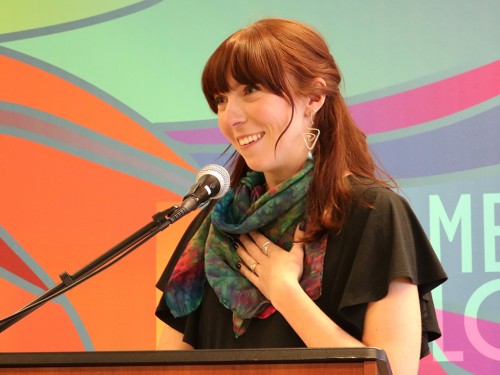Little Bubbles
[This reflection was shared at our community monthly virtual Vespers in May 2020.]
In times of stress and overwhelm, it is not uncommon for the prevailing advice to be “Breathe.” It may be couched in platitudes or theologies, but it boils down to that singular suggestion. “Breathe.”
Rather than repeating that suggestion today, I want to call our attention to the reality that the suggestion to breathe is actually a two-step process. Two individual actions with differing purposes and outcomes.
First, we must “inhale.” Stop and smell the roses. Expand your chest to make space for the air. To breathe in the healthy oxygen your blood and being longs for.
And then there is a second step. The exhale. It is just as important as the first, though in my experience it is highly overlooked. When we exhale, we release—not just to prepare ourselves for the next inhale—but we release the toxins held inside.
Not just toxins that we might have taken in during the inhale. But the toxins created by our own body. Because our process of living and being has twisted oxygen, nutrients, and healthy intake into toxins that if held inside will compromise us.
When we exhale, we exhale the toxins we ourselves have created. So that the next time we breathe in, we can breathe in the fullness of what that breath has to offer.
In Whitney Houston's song “Waiting to Exhale,” she says:
Life never tells us, the when's or why's
When you've got friends, to wish you well
You'll find your point when
You will exhale
When the weight of life is bearing down on us, when life has once again failed to tell us the when’s or why’s to the unending questions within and around us, we must remember to exhale. To release the tension and the toxins within us that we have held too close.
I know many of us feel underwater right now, like we are drowning from the weight of the world and its questions, its uncertainty, the grief, and the unmet or awaiting expectations.
But here's the thing about holding your breath underwater: It too requires an exhale. When you dive down deep into the water, if you wish to hold your breath for longer, you do not clench your lungs and tighten the grip on your breath. Instead, you relax your lungs and you ever so slowly exhale—releasing little bubbles into the water that surrounds you. Those little bubbles, those small exhales, allow that deep breath to be maintained for longer.
So my friends, as you dive deep into the depths of human experience into the grief and the questions and the call of this time and our work, I want to invite you to remember the power of the exhale, the power of blowing a few little bubbles.

Greta Seidohl
Greta graduated with a Master of Divinity in May 2019. She and her partner welcomed their first baby a month later. During her years as a student at Meadville Lombard, she served as the president of the Student Advisory Council. She was a ministerial intern at the Unitarian Universalist Fellowship of Huntington, NY.

